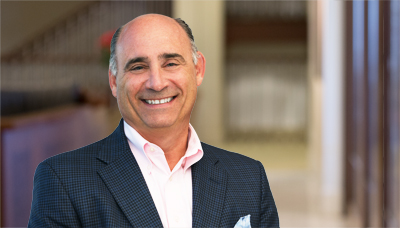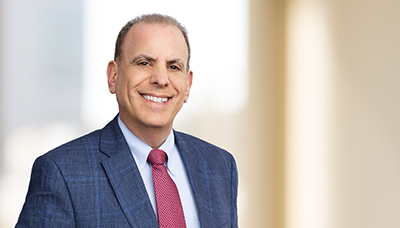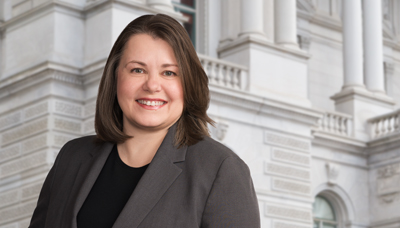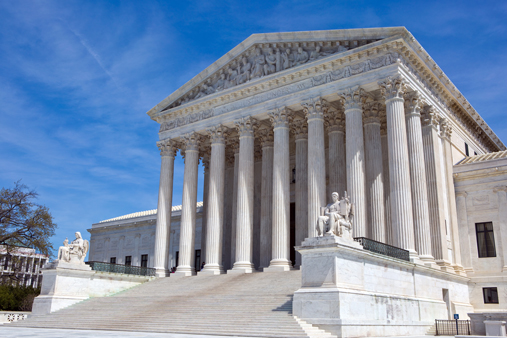Beginning in 2017, various state and federal employment laws are set to undergo significant changes that will affect employers within Illinois and, more specifically, Chicago. Among the existing laws affected are the Fair Labor Standards Act and Illinois Privacy in the Workplace Act. New laws and ordinances will also go into effect, including the Illinois Employee Sick Leave Act, Chicago Paid Sick Leave Ordinance and Cook County Earned Paid Sick Leave Ordinance.
Fair Labor Standards Act
Major changes to the Fair Labor Standards Act (FLSA) were planned to take effect on Dec. 1. These changes would have dramatically altered the “white collar” overtime exemptions; however, on Nov. 22, Judge Amos Mazzant of the U.S. District Court for the Eastern District of Texas ordered a nationwide injunction on implementing the new FLSA rules. See our legal alert for more information about this significant development. On Dec. 1, the Department of Labor appealed this decision to the 5th Circuit Court of Appeals.
Illinois Right to Privacy in the Workplace Act
On Jan. 1, 2017, the Illinois Right to Privacy in the Workplace Act (IRPWA) will expand its protections to prevent employers from insisting on access to any employees’ “personal online accounts.” The definition of “personal online accounts” now includes all “online accounts” “used by a person primarily for their personal purposes.” Previously, IRPWA contained a narrower definition of the type of protected accounts and only prevented employers from seeking access to certain “social networking websites,” such as Facebook.
The amendments to IRPWA prohibit an employer or prospective employer from attempting to access employee social media accounts. The amendments state that employers cannot “request, require or coerce” an employee to: provide a username or password to any personal online account; authenticate or access a personal account in the presence of the employer; invite the employer to join a group affiliated with any personal account; or join an online account established by the employer. The amendments also expanded the parameters of what constitutes a “personal online account,” which IRPWA now defines as any online account primarily used for personal purposes.
The IRPWA amendments do not, however, prohibit employers from making inquiries regarding personal online accounts in certain instances, including to ensure compliance with state and federal law and to investigate an allegation based on specific information that alleges a violation of law. It likewise does not prohibit activity with respect to “business” or “professional” online accounts.
Illinois Employee Sick Leave Act
The Illinois Employee Sick Leave Act will take effect on Jan. 1, 2017. It does not require employers to provide sick leave benefits to their employees; however, it does permit employees to use personal sick leave benefits that employers already provide for work absences due to injury, illness or medical appointment of a spouse, child, domestic partner, sibling, parent, father-in-law, mother-in-law, grandchild, grandparent or stepparent.
The act does not require employers to adopt sick leave policies if there are not sick leave policies in place and does not expand any benefits provided under the Family and Medical Leave Act (FMLA). Illinois employers may limit the amount of personal sick leave benefits for the care of family members to “not less than the personal sick leave that would be accrued during 6 months.” The act prohibits retaliation against employees who choose to exercise the rights conferred under the act.
Chicago Paid Sick Leave Ordinance
The Chicago Paid Sick Leave Ordinance will take effect on July 1, 2017, and applies to employers that maintain a business facility within Chicago’s geographic boundaries and/or are subject to at least one city licensing requirement. Employees are covered under the ordinance if they work at least two hours for a covered employer in a two-week period while physically present within the geographic boundaries of Chicago and work at least 80 hours in any 120-day period for the same employer, regardless of location.
A covered employee may earn up to 40 hours of paid sick leave per year (beginning on July 1 or the first day the employee begins work, whichever is later) and may carry over up to 20 hours to the following year. The rate of accrual is one hour of paid sick leave for every 40 hours worked. If the employer is subject to the FMLA, then the covered employee may carry over an additional 40 hours of unused paid sick time to use for FMLA-eligible purposes.
An employee may begin using the accrued sick leave no later than 180 days after the beginning of employment and may use only 40 hours during a one-year period, subject to certain modifications in the event that FMLA leave is used. Under the ordinance, paid sick leave may be used for absences related to: illness or injury of a covered employee or covered employee’s family member; treatment, diagnosis or preventative medical care of a covered employee or covered employee’s family member; domestic or sexual abuse of a covered employee or covered employee’s family member; or the covered employee’s place of business or child’s school or place of care being closed due to a public health emergency.
The ordinance imposes two notice requirements on employers: (1) to post a notice on the premises of each Chicago facility, in a conspicuous place, advising covered employees of their right to sick leave under the ordinance; and (2) a notice that advises covered employees of their rights under the law included with the first paycheck that is subject to the ordinance.
Cook County Earned Paid Sick Leave Ordinance
Likewise, the Cook County Earned Paid Sick Leave Ordinance goes into effect on July 1, 2017. The county ordinance applies to private sector employees, excluding home rule municipalities that enacted their own laws, such as the city of Chicago. The Cook County Earned Paid Sick Leave Ordinance largely follows the legislative scheme of the Chicago Paid Sick Leave Ordinance. The accrual method under the Cook County ordinance is the same as that under the Chicago ordinance, and the sick leave may be used for the same reasons outlined above. Employers must also adhere to the same notice requirements as the Chicago ordinance.
To obtain more information, please contact the Barnes & Thornburg Labor & Employment attorney with whom you work, or a leader of the firm’s Labor & Employment Law Department in the following offices:
Kenneth J. Yerkes
Department Chair
(317) 231-7513
John T.L. Koenig
Atlanta
(404) 264-4018
David B. Ritter
Chicago
(312) 214-4862
William A. Nolan
Columbus
(614) 628-1401
Mark S. Kittaka
Fort Wayne
(260) 425-4616
Robert W. Sikkel
Grand Rapids
616-742-3978
Peter A. Morse
Indianapolis
(317) 231-7794
Scott J. Witlin
Los Angeles
(310) 284-3777
Teresa L. Jakubowski
Washington, D.C.
(202) 371-6366
Janilyn Brouwer Daub
South Bend/Elkhart
(574) 237-1130
Visit us online at www.btlaw.com or on Twitter @BTLawLE, and don’t forget to bookmark our blogs at www.btlaborelations.com and www.btcurrents.com.
© 2016 Barnes & Thornburg LLP. All Rights Reserved. This page, and all information on it, is proprietary and the property of Barnes & Thornburg LLP. It may not be reproduced, in any form, without the express written consent of Barnes & Thornburg LLP.
This Barnes & Thornburg LLP publication should not be construed as legal advice or legal opinion on any specific facts or circumstances. The contents are intended for general informational purposes only, and you are urged to consult your own lawyer on any specific legal questions you may have concerning your situation.
Visit us online at www.btlaw.com and follow us on Twitter @BTLawNews.

















/Passle/6488d4630e7e25c9ac9f834a/MediaLibrary/Images/2024-07-18-19-15-33-047-669969d52008239f764a11af.png)


/Passle/6488d4630e7e25c9ac9f834a/SearchServiceImages/2024-07-17-15-17-44-967-6697e0980752df56d2441ada.jpg)
